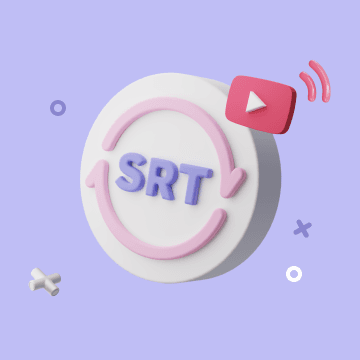
What Is a Vertical AI Agent? Definition, Examples, and How It Works
A vertical AI agent is an intelligent system designed for a specific industry or task. Unlike general AI agents, it applies deep domain expertise, manages complex workflows, and keeps contextual memory for multi-step operations. These agents deliver precise insights and actionable recommendations tailored to their specialty.
With bika.ai, teams can directly build and manage specialized ai agent platforms, orchestrating ai-powered seo agents and other agents to automate workflows. Entrepreneurs and teams move from manual operators to decision-makers, leveraging AI to scale tasks efficiently.
What Is a Vertical AI Agent and How Does It Differ from a General AI Agent?
A vertical AI agent is a specialized system built for one industry or business domain. It focuses on deep knowledge, domain data, and context-specific actions. Unlike broad models, it understands the rules and patterns of a single field. This focus allows it to solve problems with precision and efficiency.
A general AI agent works across multiple sectors but often lacks depth. It can manage diverse inputs but struggles with specialized logic. A vertical AI agent learns the language, workflows, and data patterns of its niche. It becomes an expert in the same way a professional learns from experience.
These AI agents perform tasks that require judgment and domain awareness. They do more than respond; they act with intent:
- In healthcare, they can process patient records.
- In finance, they evaluate risk and detect fraud. Each task reflects both automation and understanding.

With bika.ai, teams can create ai-powered seo agents or industry-specific AI agent platforms that scale intelligently. The platform helps users move from manual control to guided automation. Entrepreneurs become decision-makers who shape the system’s actions and outcomes.
How Did AI Tools Evolve Into AI Employees and AI Departments?
AI started as simple tools that followed instructions. Early systems only reacted to input. Over time, they gained memory, reasoning, and adaptive behavior. Today, a Vertical AI agent can plan, learn, and make informed choices on its own.
The evolution follows three main stages:
- AI Tools: Focused on automation and single-purpose actions.
- AI Employees: Capable of decisions within clear boundaries.
- AI Departments: Groups of agents that collaborate and share data.
Each step increases independence and coordination. AI is no longer just an assistant, but a working partner. Businesses now use it to manage projects, analyze results, and improve workflows. This change marks a shift from support technology to core productivity systems.

Through bika.ai, even small teams can build full AI departments. Its vertical AI agent modules work together on marketing, analytics, or service tasks. They integrate seamlessly and exchange data in real time. With such systems, teams achieve more with less effort.
These ai-powered seo agents show how business operations are transforming. Workflows become dynamic, and results arrive faster. Instead of replacing humans, intelligent agents expand what teams can achieve.
How Do Vertical AI Agents Actually Work?
Vertical AI agents operate through sensing, reasoning, and acting, executing industry-specific tasks efficiently. They maintain context memory, track past interactions, and generate insights for smarter decisions. Users leveraging AI agent platforms can delegate multi-step workflows while keeping oversight.
To understand their operational mechanics, consider the following key capabilities of vertical ai agents:
- Goal Management: Planners break complex objectives into actionable sub-tasks.
- Autonomous Execution: Executors perform tasks and interact with external tools or APIs.
- Context Memory: Memory modules preserve relevant historical data for continuity.

bika.ai demonstrates these principles as a full AI agent platform. Its modular workflow and Automation Hub enable users to design end-to-end processes, integrating databases, dashboards, and documents seamlessly. ai-powered seo agents built on the platform can handle repetitive marketing or analytical tasks autonomously.
With vertical ai agents, even small teams achieve enterprise-level automation. bika.ai empowers entrepreneurs to shift from operators to decision-makers. Its system combines ai agent orchestration, automation, and strategic oversight, boosting both efficiency and accuracy.
What Are the Real-World Examples of Vertical AI Agents?
Vertical AI agents are transforming industries by embedding deep domain expertise into automated workflows. They excel in tasks that require specialized knowledge, compliance awareness, and contextual understanding. By focusing on specific sectors, vertical AI agents achieve precision and efficiency beyond general-purpose AI systems.
Industry adoption reflects both breadth and depth of ai agent platforms. Financial services, healthcare, retail, SaaS, and education have seen unique integrations: these agents handle specialized workflows, reduce human error, and support decision-making with data-driven insights. Their effectiveness comes from combining automation with deep industry knowledge, enabling teams to scale efficiently.
- Financial Services: Monitor transactions, detect fraud, assist with loan approvals, and ensure AML compliance. Agents continuously analyze streams of financial data to generate alerts and reports.
- Healthcare: Integrate EHRs, track patient histories, support diagnostic processes, and draft preliminary reports for clinician review. Agents analyze patterns to highlight risk factors and treatment insights.
- Retail and SaaS Companies: Automate marketing campaigns, manage customer interactions, and streamline sales processes. Agents unify CRM, email, and analytics data to optimize engagement.
- Education and Research: Automate student performance tracking, deliver real-time feedback, and support instructional design. Agents help personalize learning pathways and administrative workflows.

bika.ai offers practical implementations of these vertical AI strategies. Users can deploy ai-powered seo agents for content creation, marketing automation, and lead management. Its templates bundle automation, integrations, and resource management, allowing teams to launch specialized AI agents in minutes. AI agent platforms like bika.ai enable small teams to handle complex workflows that previously required full departments.
Across all sectors, vertical AI agents accelerate automation, reduce repetitive manual work, and surface actionable insights. They enhance decision-making, ensure compliance, and support scaling with minimal additional staffing. By combining specialized knowledge with operational autonomy, these agents amplify productivity and allow companies to innovate faster in their domains.
Why Are Businesses Adopting Vertical AI Agents?
Businesses adopt vertical AI agents to improve efficiency, reduce costs, and accelerate decision-making. These agents deliver deep domain knowledge and contextual understanding. They outperform general AI by automating specialized workflows with precision and reliability.
Cost efficiency drives adoption. Vertical AI agents can replace repetitive tasks and entire teams, lowering payroll expenses and operational overhead. They scale effortlessly, enabling companies to expand without proportionally increasing headcount.
Organizations adopt vertical AI agents not only for cost efficiency but also to accelerate decision-making and improve outcomes. These agents bring intelligence and precision to complex business operations. Key advantages include:
- Decision speed and insight: AI agent platforms process large datasets, detect patterns, and generate actionable recommendations in real time. Industries like financial services, manufacturing, and logistics leverage this for predictive analysis and rapid responses.
- Personalization: Vertical ai agents adapt interactions based on user history, preferences, and contextual information. Companies deliver tailored support, product recommendations, and automated responses efficiently.
These capabilities allow businesses to act faster, reduce errors, and elevate both customer and employee experiences. Combined with platforms like bika.ai, teams can transform AI into a proactive, strategic partner that scales seamlessly.
bika.ai strengthens these business benefits by enabling autonomous ai agent teams. Its platform combines automation, databases, dashboards, and documents, turning agents into proactive collaborators. Organizations move from AI-augmented tools to AI-driven structures, achieving strategic transformation.
💡Pro Tip: Treat vertical AI agents as strategic partners. Let them handle specialized tasks reliably, so your human team can focus on high-value decisions. This approach shifts your organization from incremental AI adoption to full integration.
How Does an AI Agent Platform Like bika.ai Empower Individuals and Teams?
bika.ai allows individuals and small teams to build vertical ai agents and automate complex workflows quickly. Its AI agent platform supports one-person companies or micro-teams in managing thousands of tasks efficiently. Automation templates enable rapid deployment, minimizing setup time.
The platform’s core philosophy—Chat → Tool → Artifact → Resources—guides creation and collaboration. Ai-powered seo agents and other specialized agents integrate seamlessly with databases and automation hubs. Users can coordinate AI agents like human team members, assigning roles and monitoring outcomes.
Organizations adopt vertical ai agents not only for cost efficiency but also to accelerate decision-making and improve outcomes. These agents bring intelligence and precision to complex business operations. Key advantages include:
- Decision speed and insight: Ai agent platforms process large datasets, detect patterns, and generate actionable recommendations in real time. Industries like financial services, manufacturing, and logistics leverage this for predictive analysis and rapid responses.
- Personalization: Vertical ai agents adapt interactions based on user history, preferences, and contextual information. Companies deliver tailored support, product recommendations, and automated responses efficiently.
These capabilities allow businesses to act faster, reduce errors, and elevate both customer and employee experiences. Combined with platforms like bika.ai, teams can transform AI into a proactive, strategic partner that scales seamlessly.
The platform empowers users to transform AI from a supporting tool into a strategic partner. By combining automation, domain expertise, and collaboration, ai agent platforms like bika.ai enable teams to scale capabilities, innovate faster, and reduce operational friction.
Conclusion: From Vertical AI Agents to Intelligent Organizations
From AI agent to intelligent organization, vertical AI agents redefine how teams operate. They combine context understanding, autonomous execution, and domain expertise. Businesses gain faster insights, scalable workflows, and cost efficiency.
The evolution moves from simple AI tools to AI employees, then AI departments, culminating in fully integrated intelligent organizations. AI agent platforms like bika.ai empower users to oversee their AI teams with a CEO-level perspective. Entrepreneurs can orchestrate workflows, delegate tasks, and make strategic decisions with confidence.
bika.ai facilitates this transition by centralizing vertical AI agents, resources, and automation. Teams can create multi-agent systems that collaborate autonomously and adapt dynamically to changing needs. This transforms routine operations into intelligent, self-managing ecosystems.
Looking ahead, vertical ai agents will drive industry consolidation, enhance human-AI collaboration, and enable autonomous decision-making at scale. Organizations embracing these systems gain a strategic edge while humans focus on creativity and high-value problem solving.

Recommend Reading
- What is a Marketing Automation Platform: How to Choose the Right One
- How AI Ticketing Automation Works (Plus Benefits You Can’t Ignore)
- Top 12 No Code AI Workflow Automation Tools for 2026
- Project Management Workflow Automation: How to Save 10+ Hours Weekly
- What Is Marketing Automation? A Practical Guide for Modern Teams
Recommend AI Automation Templates



Coming soon

